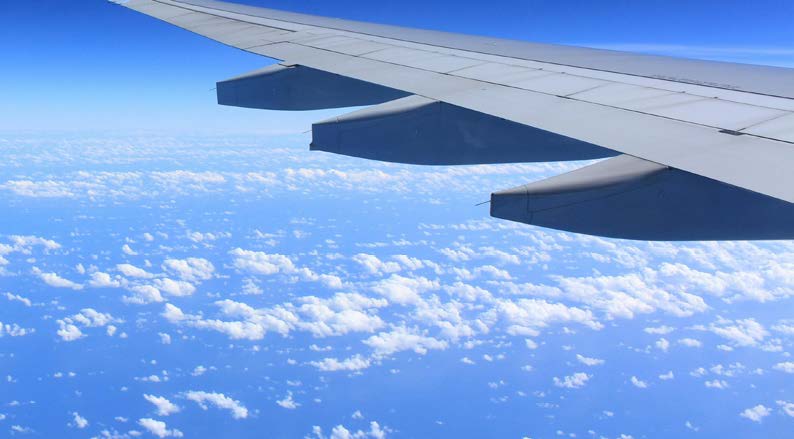29 June 2025, Seville – As world leaders gather at the international FFD4 conference in Seville to discuss development finance – a convening which only happens every ten years – there is an urgent need for concrete solutions to additional financing. The financing gap for developing countries continues to widen as they face the twin challenges of climate change and extreme poverty, exacerbated by increasing debt distress while many donor governments are cutting their aid budget.
Solidarity levies can raise significant, additional debt-free revenue, as shown in independent studies commissioned by the Global Solidarity Levies Task Force:
- A global coalition supporting a levy on commercial aviation tickets and private jets, in a highly polluting sector which currently doesn’t pay tax on kerosene, could raise €147 billion annually.
- A tax on buying stock market shares could raise €105 billion annually, without distorting the market.
That is why the UN has incorporated the Global Solidarity Levies Task Force – which is led by President Emmanuel Macron (France), President William Ruto (Kenya) and Prime Minister Mia Amor Mottley (Barbados) – and solidarity levies into the FFD4 agenda as a leading initiative under the Sevilla Platform for Action.
Ahead of FFD4, the Task Force is publishing vital tools to provide governments around the world with relevant insights, data and updates to help them navigate emerging coalitions, including the:
- Seville Report, which outlines progress made on concrete proposals for solidarity levies, on sectors such as aviation, fossil fuels, and financial transactions, and next steps.
- Levies Dashboard maps out which countries around the world already have taxes on key sectors such as aviation, fossil fuels or financial transactions.
- Aviation Tax Simulator, which enables government officials and experts to calculate the revenue generation potential for different coalitions of countries, based on the example of an aviation levy. Users can set different rates for key parameters to explore high, medium and low ambition scenarios.
The Task Force’s government Co-Chair Sherpas William Roos (Assistant Secretary, Multilateral, Development and Trade Affairs, Treasury, France), Ali Mohamed (Special Climate Envoy, Kenya) and Dr Arnold McIntyre (Principal Technical Advisor, Barbados) said:
“We call on all governments to join our efforts as we proceed towards delivering a coalition of the willing implementing a solidarity levy for development and climate finance by COP30. In doing so, we can break new ground to ensure a fairer and more effective financial system that truly delivers for both people and the planet.”
Friederike Röder, Director of the Global Solidarity Levies Task Force Secretariat, said:
“As we come together in Seville, the state of development finance has rarely looked grimmer. One solution exists though, which could radically change the global financial landscape: internationally coordinated solidarity levies.
“Our work shows that there are no economic or technical obstacles to imposing small levies on highly globalized and polluting sectors. Citizens would support such a move: for instance, 3 out of 4 people want wealthier airline passengers taxed more due to their outsized climate impacts of luxury aviation.
“We hope that Seville will be the moment for many champion governments to step up and show the way to go.”
ENDS
Notes to Editors
The Global Solidarity Levies Task Force will host and take part in events throughout FFD4, including:
- A ministerial roundtable on 30 June (2.30-4pm) to launch the Seville Report and set out the way forward for governments on the solidarity levies agenda ahead of COP30.
- A high-level roundtable of the Pact for Prosperity, People and the Planet (4P), on 30 June (4.30-6pm), to address next steps in ensuring that solidarity levies contribute to development and climate finance.
To advance the discussion on how future proceeds of solidarity levies should be invested best, the Secretariat of the Task Force is also launching two consultations :
- A call for proposals for mechanisms to effectively channel revenues from solidarity levies.
- A public consultation regarding the principles on the use of revenues from solidarity levies.
The task force will also publish results of its consultation on strawman levies, which have helped to shape government positions on levies. Proposals on aviation attracted the highest level of interest out of all the options, with over three quarters of respondents recommending options such as a levy on kerosene fuel, air passenger ticket levies, a frequent flyer levy or a levy on private jets.
The Task Force Secretariat has also announced new members of its expert group.
The links to the above documents will go live after the embargo has lifted, so for more information, please contact the Task Force secretariat.
Contact
Duncan Moss, Head of Communication, Global Solidarity Levies Task Force Secretariat
+32456163690
About the Global Solidarity Levies Task Force
The Global Solidarity Levies Task Force is co-led by France, Kenya and Barbados. It is responsible for designing proposals for solidarity levies on undertaxed sectors that contribute disproportionately more to global carbon emissions, are undertaxed and/or benefit extensively from globalization. These solidarity levies can help generate finance for climate and development action. The task force was formed following the Nairobi Climate Declaration, Paris Pact for People and Planet, and Bridgetown Initiative. By COP30, it aims to enable governments to bring together a coalition of the willing ready to implement one or more of these levies.





